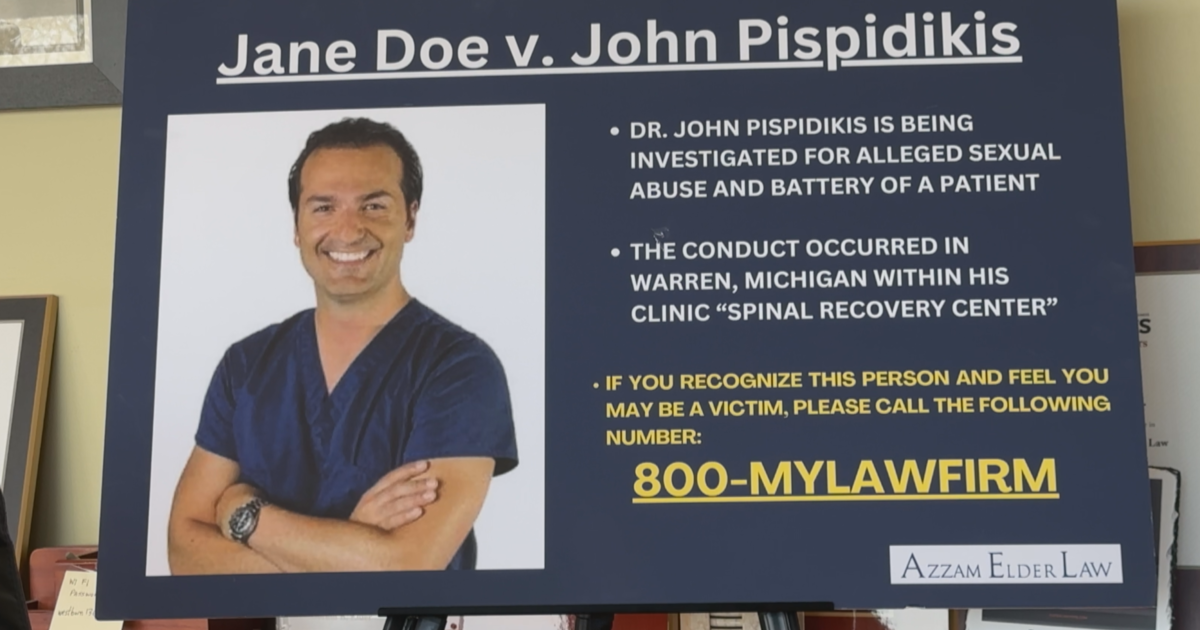CAR Study Shows GM, Chrysler Bailouts A Good Investment
ANN ARBOR (WWJ) -- The federal government's 2008-09 bailout of General Motors and Chrysler turns out to have saved the country $92 billion, a 768 percent return on the government's investment.
Oh, and by the way, it also prevented the loss of 4.1 million jobs and all the social and economic disruption that would have gone with that massive hit to the nation's job base.
That's the result of a new research report released Monday by the Center for Automotive Research, the nonprofit research organization baseed in Ann Arbor.
Said CAR chief economist Sean McAlinden, who led the study: "Two consecutive executive administrations in Washington decided in late 2008 and early 2009 that the consequences of the potential losses and outcomes to the U.S. economy -- and harmful effects to numerous employees, retirees, and business owners -- were worth avoiding through a federal intervention. CAR is confident that in the years ahead this peacetime intervention in the private sector by the U.S. government will be viewed as one of the most successful interventions in U.S. economic history."
For purposes of this study, CAR researchers used two separate alternative scenarios -- an economic model loaded with actual economic performance data for the period 2009-2010 and actual employment for GM and Chrysler and for all of the automakers.
The first scenario relied on the assumption of an automotive supplier sector collapse in January 2009 that continued for the balance of the year. It is also assumed that industry could achieve a 50 percent return to production and employment in 2010 and full recovery in 2011.
The second estimate only considered the loss of GM employment only as a net loss for the industry in 2009 and a partial loss in 2010. This second scenario was examined by CAR as an attempt to gauge the effect of just the shutdown of GM employment and capacity on the U.S. economy without the assumption of a complete collapse of the North American supplier sector affecting all other automakers.
The industry shutdown scenario results estimate that the shutdown of GM and Chrysler would have reduced U.S. employment by 2.631 million jobs in 2009 and 1.519 million jobs in 2010. The GM shutdown only scenario effect would have reduced U.S. jobs by 1.196 million jobs in 2009 and .675 million jobs in 2010.
If the final net cost of the U.S. Treasury's investment is $11.8 billion in unrecovered funds from General Motors and the reported loss of $1.9 billion at Chrysler this would total $13.7 billion in Treasury funds.
In this case, CAR's results show that the U.S. government saved or avoided the loss of $105.3 billion in transfer payments and the loss of personal and social insurance tax collections or 768 percent of the net investment.
Even more impressive are the results of the GM scenario which did not even require the assumption of shutting down the supplier sector or other automaker employment. The only assumption was that other automakers could not replace GM capacity and employment until 2011. In this case, federal and state governments avoided the loss of $39.4 billion in increased transfer payments and lost taxes in just two years: 2009-2010. This is 334 percent of the projected $11.8 billion of Treasury funds not recovered on the public's investment in GM.
Other benefits of the intervention that are not always taken into consideration was the direct impact on GM and Chrysler retirees, a probable permanent loss of automotive research and product development jobs, and the implications of bankruptcies of this magnitude in 2009 on the confidence of the main street economy of the United States.
The complete study is available on the CAR website, www.cargroup.org.



